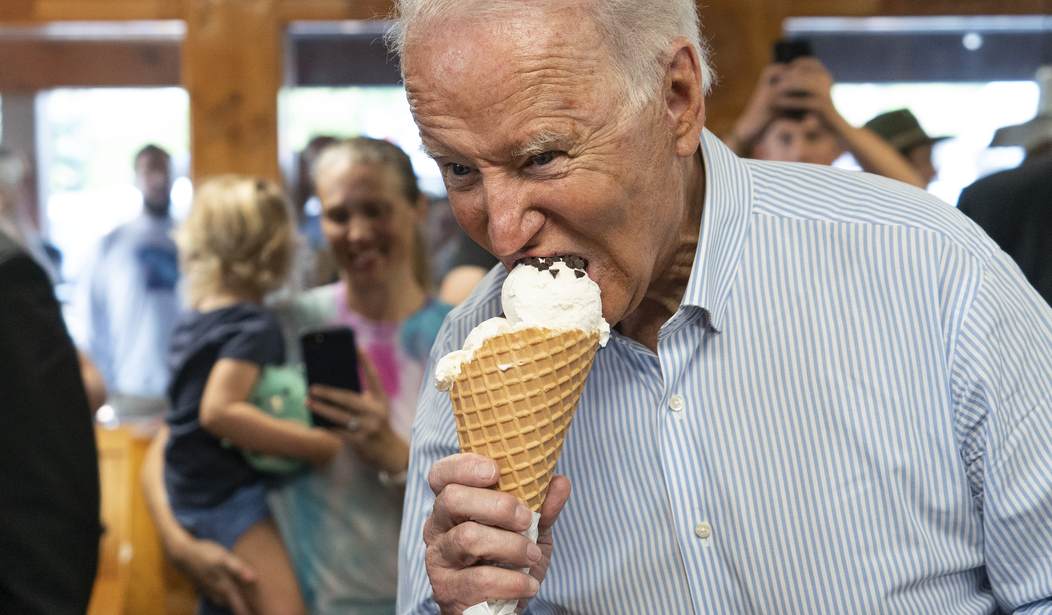The Supreme Court will take up a case Tuesday that will go a long way towards deciding if we remain a Constitutional republic or if we have begun that slide that the Founders tried to forestall of a dictator ruling by diktat.
The case is Biden vs. Nebraska, which deals with a student loan forgiveness plan that Joe Biden made up out of thin air. On August 24, 2022, two and a half years after a COVID public health emergency was declared by President Trump, Biden announced that he was canceling $10,000 in federal student loan debt for most borrowers and $20,000 for Pell Grant recipients.
In keeping with my campaign promise, my Administration is announcing a plan to give working and middle class families breathing room as they prepare to resume federal student loan payments in January 2023.
I'll have more details this afternoon. pic.twitter.com/kuZNqoMe4I
— President Biden (@POTUS) August 24, 2022
Biden used as his authority the 2003 Higher Education Relief Opportunities For Students (HEROES) Act (I hate these stupid names for laws). This law allows the president to waive requirements for federal student loan repayment for three classes of Americans: active duty military or full-time National Guard members; people who live in a declared disaster area; and people who have suffered a direct economic hardship as a result of wars, military operations, or national emergencies.
President Trump invoked this act to pause principal and interest payments on student loans. Biden followed Trump’s lead and extended the “pause” through December 2022.
In August 2022, after a lengthy internal debate on the legality, Biden decided to create law by fiat. Instead of waiving the repayment terms, Biden decided to use the federal government as a piggy bank to pay off his supporters.
[Education Secretary Miguel ] Cardona’s directive reasoned that the temporary suspension of payments had itself increased the risk of individual default once billing resumed. The Education Department cited research showing that borrowers who were granted forbearance for specific natural disasters had difficulty resuming payments when they were restarted. It concluded that borrowers would be at greater risk of default following resumption of payments than they would have been had the pandemic never led the government to pause their obligations.
At no time during this process did the Department of Education enter into the rule-making process that would have required them to solicit and consider public comments and publish a federal regulation.
A coalition of six states led by Nebraska (Nebraska, Missouri, Arkansas, Iowa, Kansas, and South Carolina) challenged the directive issued by Cardona as being contrary to the text of the law. A George W. Bush-appointed judge in the Eastern District of Missouri dismissed the case for “lack of standing.” Somehow, the state’s student loan systems being left holding the bag for billions they had paid out but could no longer collect didn’t sound substantive to Judge Henry Autrey. The states appealed, and a panel of the Eighth Circuit reinstated the case.
As this was happening, a couple of student loan debtors who did not qualify for the forgiveness program filed suit in the Northern District of Texas, asking for the entire Biden voter payoff scam to be thrown out because it ignored the law and it ignored the Administrative Procedures Act. Judge Mark Pittman (a Trump appointee) threw out Biden’s policy, and the Fifth Circuit refused to hear an appeal from the Department of Education.
This case, called Department of Education vs. Brown, has been combined with Biden vs. Nebraska for the oral arguments.
According to the Washington Post, Biden’s legal gurus are looking at Biden’s won-loss record on things like the vax mandate on businesses, the rent moratorium, and other instances where Biden has decided that the whole legislative thing is too much of a burden had have decided to attack the standing of the parties in both cases. If they win the standing issue, then the court doesn’t need to address the legality of Biden’s action.
What is at stake is whether Congress even matters. Making the leap from postponing principal and interest payments in the case of a self-inflicted “emergency” is one thing. Dipping into the nation’s bank account to buy votes is something entirely different. If the Court finds Biden has the authority to rewrite laws at his whim, the American experiment is over. If the Court rules that no one has standing to challenge such actions, then it has decided the president no longer has to go to Congress for permission to do anything.
This case is a textbook example of abuse of power. Biden and his cronies knew they couldn’t do this legally, but they did in any way, theorizing that no one could stop them. If the court rules that Biden was wrong, and I think it will, Biden’s hijacking of a law to undertake action that he, himself, did not think was legal should be an impeachable offense.













Join the conversation as a VIP Member